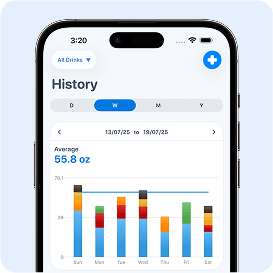
Hydration During Pregnancy: How Much is Enough?
Pregnancy is a beautiful and life-changing journey. But it also brings big changes to a woman’s body. One of the most important, and often overlooked, parts of a healthy pregnancy is staying well-hydrated. Drinking enough water is not just good for the mother but also helps the baby grow and develop properly.
In this blog, we’ll explore why hydration is so important during pregnancy and how much water you really need, the signs of dehydration to watch out for, and simple tips to help you drink more water every day. Whether you’re in your first trimester or close to delivery, this guide will help you take better care of yourself and your baby.
Role of Hydration During Pregnancy
During pregnancy, your body goes through many changes to support the growing baby. One of the most important parts of this process is staying hydrated. Water helps form the amniotic fluid around your baby, aids digestion, builds extra blood volume, and helps your body absorb important nutrients. It also helps carry those nutrients to your baby through the placenta. Good hydration can ease common pregnancy discomforts like constipation, swelling, fatigue, and headaches. It also supports kidney function, keeps your body cool, and helps your skin stay healthy and soft. In short, drinking enough water every day is one of the easiest and most powerful ways to care for both yourself and your baby during pregnancy.Why Hydration Is So Important During Pregnancy
When you’re pregnant, your body works harder than usual. It creates more blood, supports the growing baby, and deals with pregnancy hormones that can affect everything from your digestion to your skin. Water plays a key role in all of this. Here’s why staying hydrated is extra important during pregnancy:
1. May Help Build the Baby’s Amniotic Fluid
Amniotic fluid surrounds and protects your baby in the womb. It helps with movement, growth, and temperature control. Water is the main ingredient of amniotic fluid, especially in the early weeks. Not drinking enough water can lead to low levels of this fluid, which may cause problems during pregnancy.2. May Support Blood Volume and Circulation
Your blood volume increases by about 50% during pregnancy to carry nutrients and oxygen to your baby. Water helps maintain that extra blood and keeps it flowing well. Poor hydration can lead to low blood pressure, dizziness, and feeling tired all the time.

3. Reduces the Risk of Constipation and UTIs
Pregnancy hormones slow down digestion, which can lead to constipation. Drinking water helps keep things moving. It also helps flush out bacteria from your urinary tract, lowering the risk of urinary tract infections (UTIs), which are common during pregnancy.4. Helps Manage Swelling and Overheating
Mild swelling in the hands and feet is normal, but dehydration can make it worse. Drinking more water helps your body get rid of extra sodium and fluid. It also helps regulate your body temperature, which is important because pregnant women often feel hotter than usual.
How Much Water Should You Drink During Pregnancy?
The general rule for adults is to drink about 8 glasses of water a day. But during pregnancy, experts recommend increasing that to 10-12 cups (around 2.3-2.8 litres) per day. That is around 80-100 ounces of water. But everyone is different. How much water you need also depends on:Your body size
How active are you
The weather (hot climates need more water)
Whether you are vomiting or sweating a lot.
You don’t have to drink plain water all the time. The food you consume like soups, juices (unsweetened), milk, coconut water, and water-rich fruits like watermelon and cucumbers also count for sure.
A good way to check if you are drinking enough is by looking at the color of your urine. It is pale yellow? Then you are perfectly fine, no need to worry. If it’s dark yellow, you need more fluids.
Signs of Dehydration during Pregnancy
Sometimes we forget to drink enough water, especially when busy or nauseous. But dehydration can cause many problems during pregnancy if ignore for too long. Here are some warning signs to look out for:Dry mouth or sticky feeling in your mouth
Headaches or dizziness
Dark yellow or strong-smelling urine
Tiredness or feeling weak
Constipation or hard stools
Fast heartbeat
Overheating or feeling too hot
In severe conditions. dehydration can cause:
Low amniotic fluid
Preterm labour
Urinary tract infections
Slower baby growth
If you feel very dizzy, have not urinated in many hours, or notice less baby movement, contact your doctor right away.
Tips to Stay Hydrated During Pregnancy
One of the best ways to make sure you drink enough water during pregnancy is to start your day with a glass of water. Before you have your tea or coffee, drinking plain water can help your body wake up and stay active. Keeping a water bottle with you wherever you go can be helpful. Whether you are at home, work, or out shopping, having water close by makes it easier to sip throughout the day without even thinking much about it.
Track your hydration levels
If you are someone who always need reminders to drink water, or is just having pregnancy brain then apps like WaterMinder can be a great idea. These app can help you set daily goals and remind you to take small sips often. If plain feels boring you can also some lemon, mint, orange or watermelon to make it flavored water.
